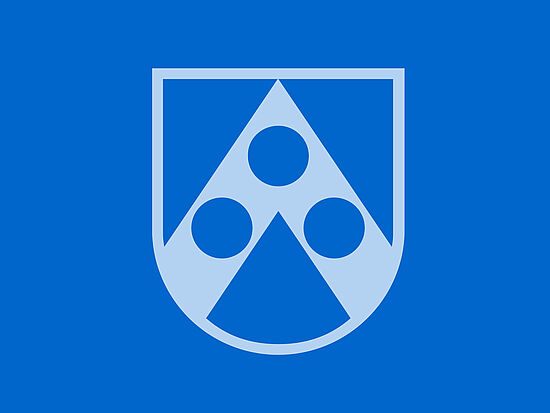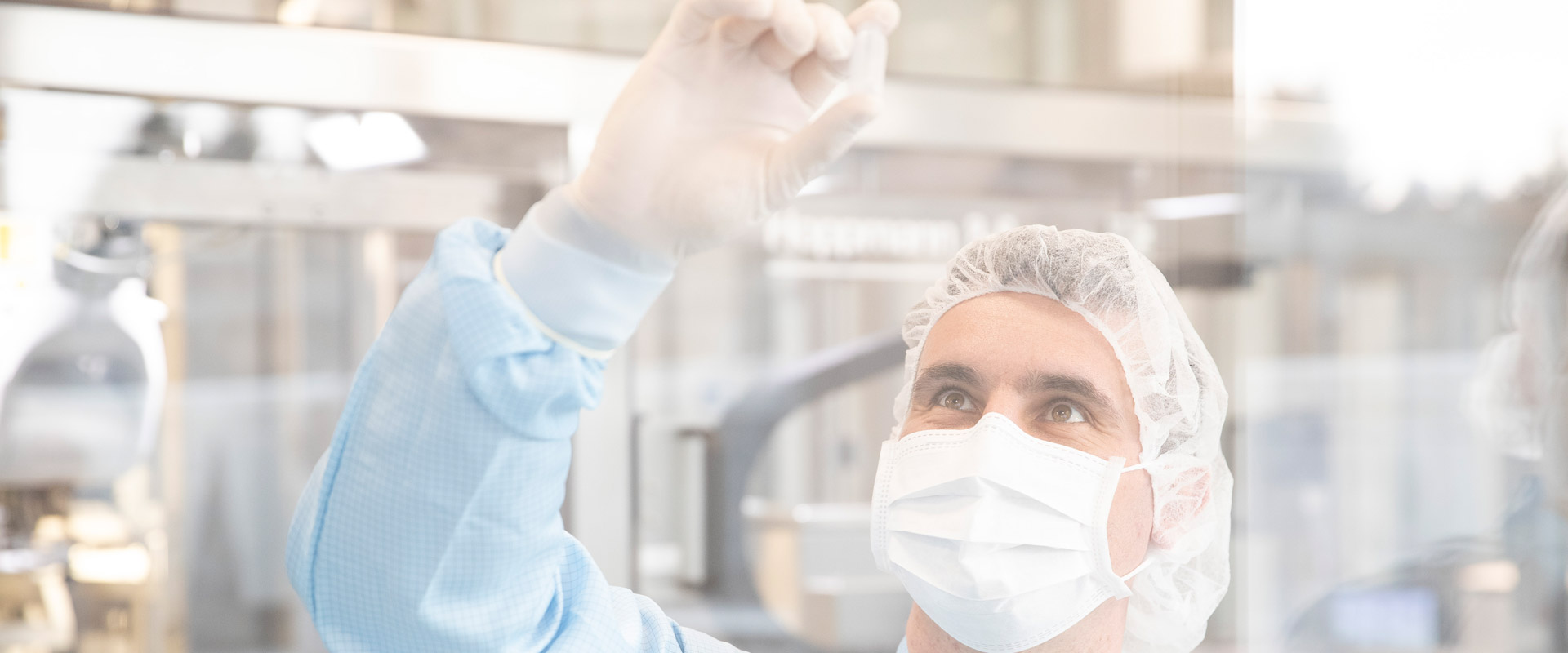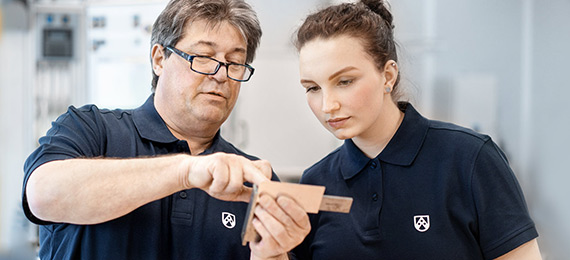- Gratifying Start to the Year 2010
- Crisis Year 2009 Overcome
- Good Financial Position Further Improved
- Innovative Strength Secures Market Position
Mannheim, Germany, May 20, 2010…The Röchling Group (Mannheim), a worldwide industry leader in engineering plastics, has enjoyed a good start to the year 2010. Sales increased by 22 percent compared to the first quarter of 2009, to EUR 239.4 million. Incoming orders were even more impressive. They increased by 39.6 percent to EUR 256.7 million. Orders received therefore topped sales once again – unlike the temporary situation in 2009. "Röchling is once again on a course of growth", reports Georg Duffner, CEO. He is anticipating potential for growth in the High-Performance Plastics division in particular, where medical technology among other things plays an increasingly important role. Mr. Duffner also sees the Company in an optimal position from a financial perspective. "The financial situation continued to improve in 2009. We have not only been debt-free since the year 2005 following our far-reaching restructuring, but we also enjoy continuously increasing liquidity for investments. The equity ratio is stable at 34 percent."
Röchling Maintains Ground Well in Crisis Year 2009
The Röchling Group rode out the 2009 fiscal year, which featured the worst economic crisis in 60 years, unscathed. Continuation of the strict cost-cutting measures introduced back in 2008 was a very decisive factor. The Röchling Group profited from both its financial stability and its technological leadership position in many areas of plastics manufacturing last year, whereas many of its competitors in plastics processing were forced to abandon operations.
The sharp recession of last year is reflected in the development of total sales and incoming orders. As expected, sales lost ground, decreasing 22.1 percent to EUR 831.3 million (EUR 1,067.6 million in 2008). Incoming orders decreased by 22.2 percent from EUR 1,057.9 million to EUR 823.5 million following the sharp drop in demand in early 2009. In light of the weak economy, the Röchling Group cut back on its expenditures. It slashed investment in tangible assets by half, from EUR 52.8 million to EUR 26.7 million. One of the most important investment projects of 2009 was a ring processing machine for the Haren/Ems site as well as a new mega-sheet press in Gastonia (USA). It produces Polystone® sheets from thermoplastics sized 6,000 x 2,500 mm, which are used primarily for linings in bulk goods technology.
Due to the recession, the number of employees decreased 12.0 percent to a staff of 5,450 (from 6,194 in 2008).
The High-Performance Plastics and Automotive Plastics divisions were affected equally by the reduction in personnel. To adapt personnel costs to the sales trend, the Röchling Group reduced the number of temporary employees, introduced reduced working hours across the board from time to time and let some employees go.
High-Performance Plastics: High Productivity Creates Access to New Markets
The High-Performance Plastics division suffered mainly due to the fact that major industries such as mechanical engineering, industrial manufacturing equipment and chemistry were especially hard hit by the worldwide economic crisis. The plastics processing industry in Germany was therefore negatively and disproportionately affected by the crisis as well. One decisive factor was the sharp decline in demand accompanied by a price reduction, and disappointing international business. In the High-Performance Plastics division overall consolidated sales declined by 25.1 percent to EUR 381.5 million due to this trend (EUR 509.6 million in 2008). The rigorous cost-cutting program is illustrated by a decline in investments from EUR 21.1 million to EUR 8.9 million in the year 2009. The number of employees was reduced by 272 or 11.1 percent, bringing it to a total of 2,170 as of the reporting date of December 31, 2009.
An order for the new Ariane-5 rocket of the European Space Agency (ESA) last year, among other things, illustrated the high level of efficiency of our High-Performance Plastics. Precision parts made of Durostone® protect the cabling of sensitive measuring transducers from extreme temperatures.
Insulating components made of Lignostone® and Durostone® also hold out against greater than average demands in the new 330-kilometer per hour Velaro-high-speed trains between Moscow and St. Petersburg.
Another seal of approval for Röchling is the "Product of the Year" award for the digitally printable "PE2PRINT". Polyethylene could not be digitally imprinted up until now. The engineers at Röchling were able to rectify the surface so that the material now exhibits outstanding quality and color brilliance when printing. The award was presented by the Specialty Graphic Imaging Association (SGIA) at the SGIA Specialty Printing and Imaging Expo 2009 in New Orleans.
Automotive Plastics: Röchling Focuses on Reducing CO2 and Noise
The economic crisis hit the automotive suppliers even harder than the plastics industry. The largest economic downswing in the history of the industry led to sales declines averaging 25 percent worldwide. Since the outbreak of the economic crisis, 340 suppliers worldwide had to file for bankruptcy, 75 of which were in Germany. Added to this is the fact that the industry is currently plagued by extensive turmoil. The market is demanding completely new, energy-saving technologies while suffering at the same time from steep competition and high cost pressure. Moreover, lingering liquidity problems on the part of many suppliers harbor high risks for the industry.
The Automotive Plastics division was unable to escape from the downward trend of the automotive industry. Due to the sharp decline in demand on the part of automobile companies, this division had to put up with a 19.3 percent decline in sales to EUR 446.4 million (EUR 553.0 million in 2008). Only the Asian business with subsidiaries in Changchun and Suzhou (China) were able to successfully brace themselves against this overall trend. The economic stimulus programs of the Chinese government had a particularly favorable effect on the automotive industry there. Investments in the Automotive Plastics division were practically cut in half. They dropped from EUR 31.2 million to EUR 17.7 million. The number of employees decreased by 12.7 percent. As of the reference date on December 31, the division employed a staff of 3,240.
Due to its innovative strength, Röchling Automotive acquired several major new customers even during the difficult times of 2009.
The division supplied Toyota with cooling-water pipes for more than 100,000 engines produced using bullet shot injection molding technology.
For its "Chevrolet Cruz", GM Chevrolet ordered controllable air ducts to reduce CO2 emissions.
The Chinese engine builder Dongfeng will also rely on Röchling technology in the future. It has ordered intake manifolds for its first car model, which will be used in three gasoline engines.
In developing its innovations, Röchling focuses on reducing CO2emissions, noise and costs.
The Society of Plastics Engineers honored Röchling with the "Plastics Oscar". Together with materials manufacturer Ticona, Röchling Automotive received the Grand Award for the development of the first injection-joined VW charge-air tube made of PPS plastic. As the first series model, it guarantees temperature resistance up to 230 degrees Celsius and can withstand a pressure of up to 2.7 bar.
Outlook: Confidence for the Year 2010
The Röchling Executive Board is optimistic about further development in the year 2010, and is anticipating a significant increase in sales. Considerable risks are also envisioned, however. According to Mr. Duffner: "There are many unknowns in the current economic situation. Our business performance depends primarily on whether the economic recovery process will last, and how raw material prices will evolve."






